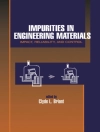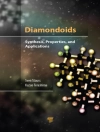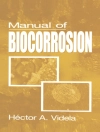Nanocarbon-Inorganic Hybrids is dedicated exclusively to the new family of functional materials, covering a multidisciplinary research field that combines materials science, chemistry and physics with nanotechnology and applied energy science. It provides a concise introduction into fundamental principles of nanocarbons, defines hybrids and composites, explains the physics behind sustainability, and illustrates requirements for successful implementation in energy applications. It further reviews the current research on developing concepts for designing nanocarbon hybrids, unravels mechanistic details of interfacial electron transfer processes and highlights future challenges and perspectives associated with exploiting these exciting new materials in commercial energy applications and beyond.
This comprehensively written book is indispensable for Master and Ph D students seeking to become familiar with a modern fi eld of knowledge-driven material science as well as for senior researchers and industrial staff scientists who explore the frontiers of knowledge.
Table des matières
Introduction
Carbon Nanomaterials
Functionalization of CNTs/Graphene
CNT-Polymer Composites
CNT-Ceramic Composites
Graphene Composites
Meta-CNTs (Fillings)
Ex-situ Coating: Metals, Photonics and Field Emission QDs
In-situ Coating: Metal Oxides, Nitrides, Sulfides
Bio/Chemical Sensors
Batteries
Supercaps
Electrocatalysis and Fuel Cells
Photovoltaics
Graphene-Hybrids
Carbon-Carbon Hybrids
Carbon-Cube Hybrids
Interfacial Processes
Industrial Perspectives
Challenges, Perspectives, Outlook
A propos de l’auteur
Dominik Eder, Westfälische Wilhelms University Münster, Germany; Robert Schlögl, Fritz-Haber-Institute of the Max Planck Society, Berlin, Germany.












